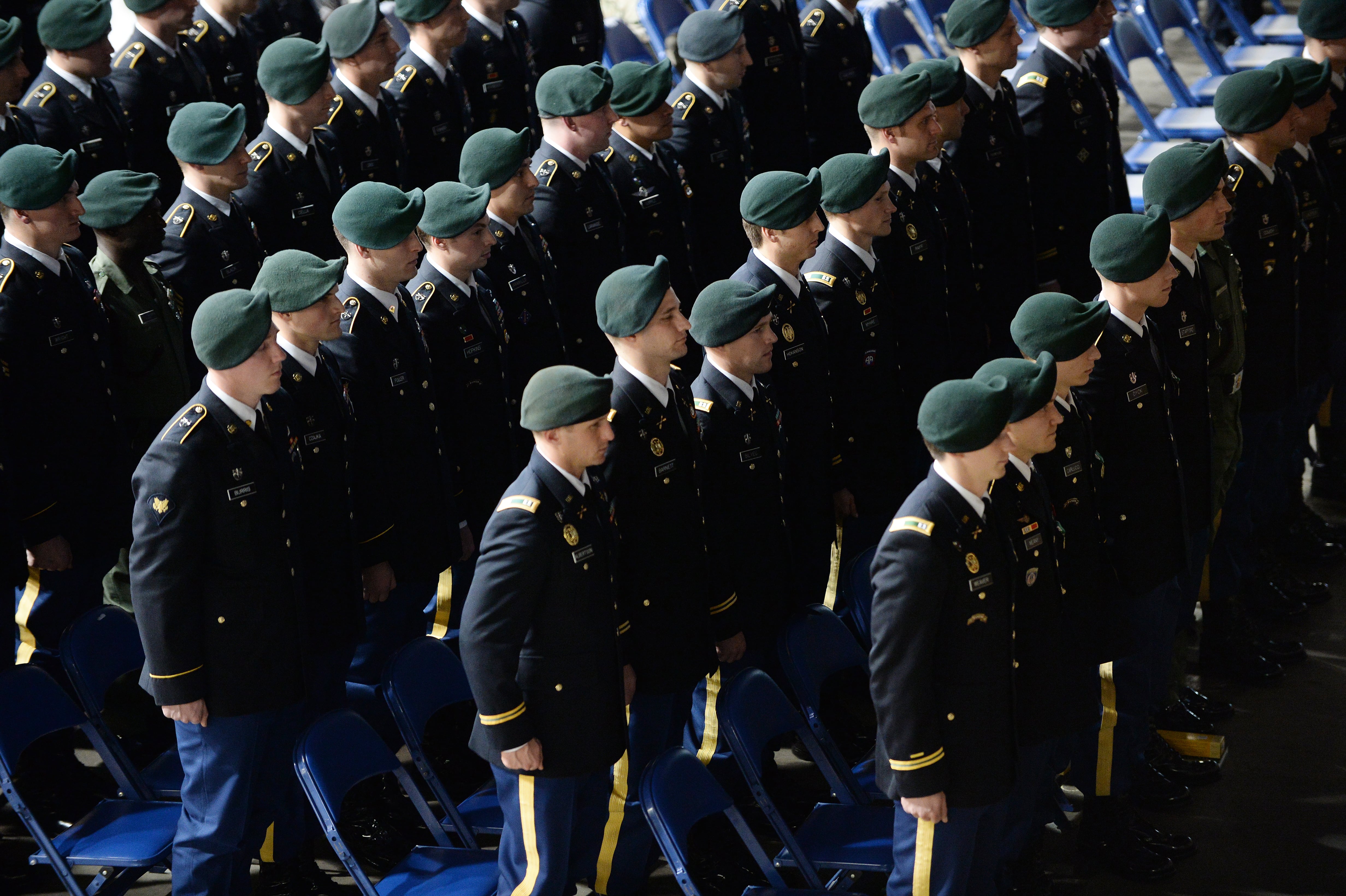Thirteen veterans and civilians were named as distinguished and honorary members Thursday to the regiments of the Special Forces, Psychological Operations and Civil Affairs community.
The inductees were honored during a ceremony that coincides with the John F. Kennedy Special Warfare Center and School’s Heritage Week to celebrate decades of training and education in Army special operation forces.
The first-ever Heritage Week marks the 71st anniversary of the Army Special Forces school and center and coincides with the 50th anniversary of the establishment of Army Training and Doctrine Command.
“Our close coordinating relationship with TRADOC is vital to ensuring Special Operations Forces remain aligned with the Army as we work to deliver the critical multi-domain capabilities for 2030,” Brig. Gen. Guillaume “Will” Beaurpere, Commander, U.S. Army John F. Kennedy Special Warfare Center School told Army Times in an email statement.
For a half-century the center and school trained generations of soldiers in irregular warfare, advanced special operations leader development and education for the total Army, Beaurpere wrote.
“We are extremely proud to be part of a TRADOC enterprise that generates the Army for the challenges of tomorrow,” he said.
Among the inductees is a Medal of Honor recipient, a former acting secretary of defense and ambassadors.
RELATED
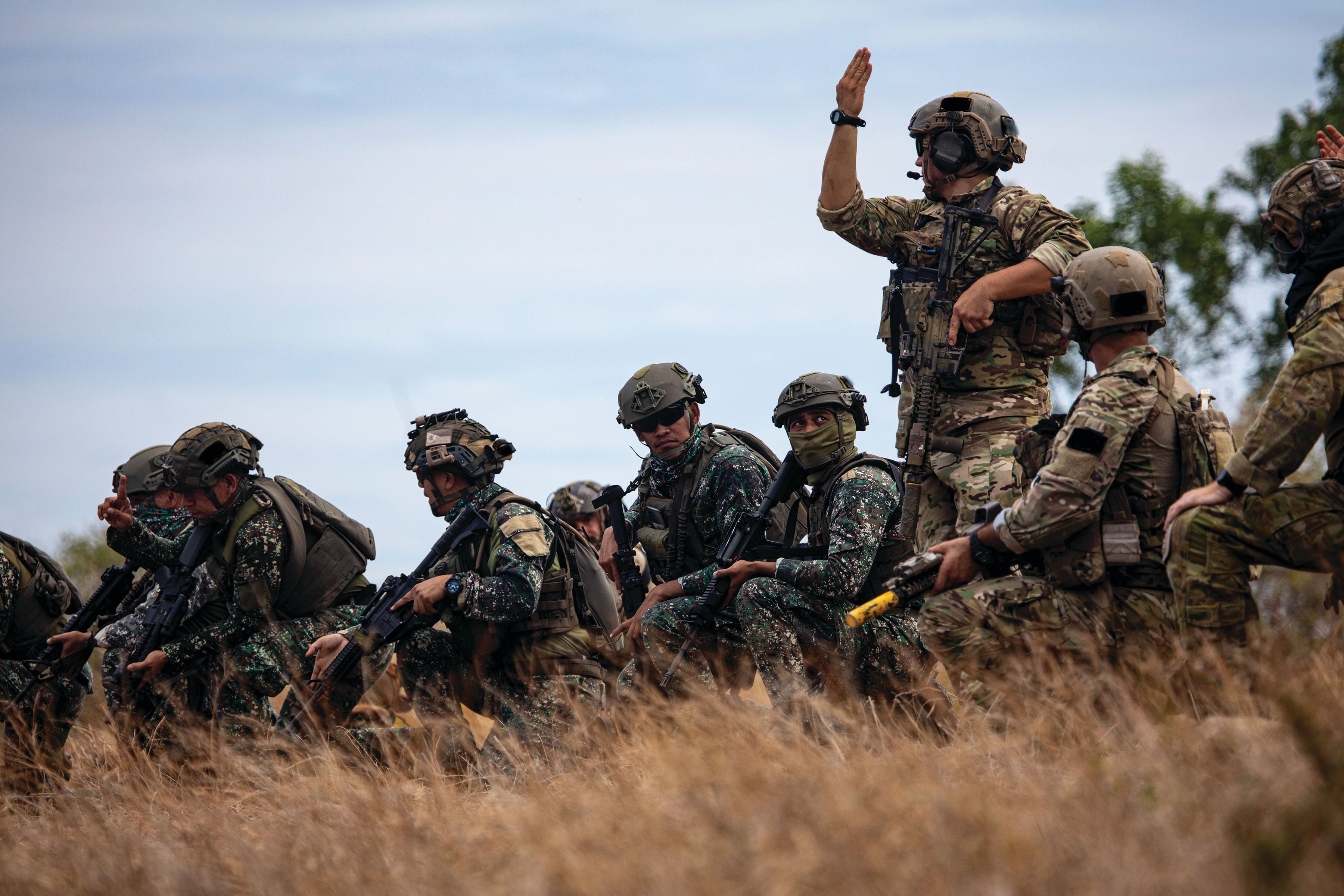
Each of the inductees has contributed to the legacy and history of their respective regiments and the nation in and out of uniform, Beaurpere said.
“The stories of physical and intellectual capabilities and adaptability of our inductees remind us that once we set our minds to an objective and a mission and commit our energies, there is very little we as Americans can not accomplish,” Beaurpere said.
The Regimental Honors program began in 1981, covered in updated Army Regulation 870-21 to replace the Combat Arms Regimental System, which dated to the late 1950s, Roxanne M. Merritt, director of the JFK School’s Heritage Center and museum, told Army Times in an email response.
The majority of inductees are retired. If on active duty status, they were either killed in action or died prematurely while serving. Nominations come from a variety of organizations, persons, or individual commands. Inductees are honored in the local ceremony and, in some cases, a medallion, Merritt wrote.
A short biography, photo and description of contributions outside of military service are included on the Regimental Hall of Fame in Clay Hall at the school/center and also on digital kiosks throughout the campus.
There have been more than 225 inductees to the Regimental Honors program since 1981. Inductees are honored by their respective regiments - Psychological Operations, Civil Affairs and Special Forces.
School spokesman Army Maj. Rick Dickson told Army Times that the first Heritage Week saw members of the three regiment communities across generations converge on Fort Bragg for a series of events that included a chapel rededication, physical training session, a formal dinner and the induction ceremony among other events.
“This Heritage Week is really focused on looking at the past and remembering our history as we try to move forward into the future,” Dickson told Army Times in a phone interview. “American irregular warfare and unconventinal warfare tactics trace back all the way to the American Revolutionary War.”
As the service looks to the Special Operations Force of 2030, Dickson said that history is important.
“We’re trying to take that history and lessons learn and move it into the future,” Dickson said.
Psychological Operations
Retired Col. Rick Springett served in multiple roles within the psychological operations regiment including in the U.S. Special Operations Command.
As chief of the Military Information Support Operations Branch, he was responsible for four trans-regional programs supporting the geographic combatant commands and theatre special operations commands. The programs included strategic military information support operations “directed against Al Qaida, their affiliates, and violent extremism.”
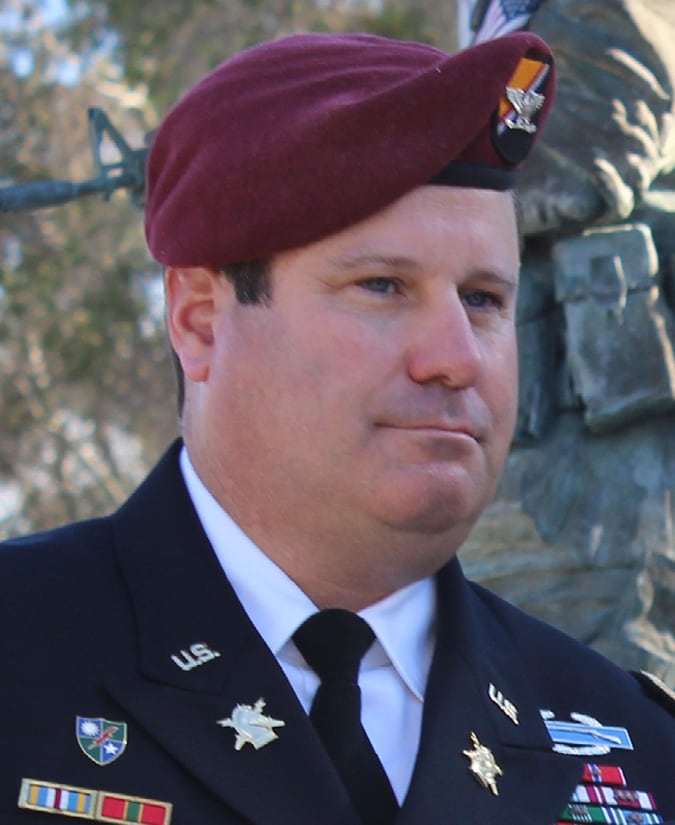
Between 2004 to 2008, Springett worked with others to establish policies and procedures for the initial assessment of psychological operations and civil affairs officers.
After his retirement in 2014, Springett was a senior civilian plans analyst under SOCOM’s Sensitive Activities Division until 2021, deploying to Afghanistan and Southwest Asia in the role.
First Lt. Daniel J. Edelman entered the Army as a public relations specialist during World War II under the 5th Mobile Radio Broadcasting Co., 100th Infantry Division.
His time at the Office of War Information “allowed him to counter German propaganda and disinformation” through publishing “Der Speigel,” a German magazine, and polling Germans to determine their attitudes toward the occupation and the Nuremberg Trials.
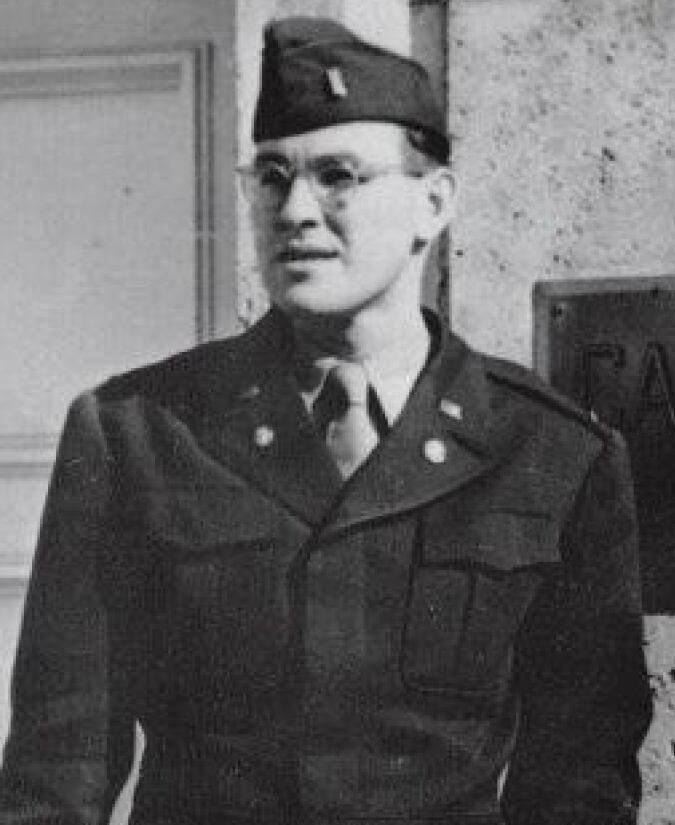
Edelman founded his own public relations firm in 1952, which counts a campaign to increase support for the Vietnam Veterans’ Memorial in its portfolio. Edelman dedicated his time to nonprofits like the American Red Cross and Save the Children until his death in 2013.
Special Forces
Maj. John J. Duffy was presented the Medal of Honor on July 5, by President Joe Biden for his 1972 actions in Vietnam.
According to Duffy’s citation, he served as a senior enlisted advisor to the 11th Airborne Battalion, 2d Brigade, Airborne Division. After his commander was killed during an attack that wounded Duffy twice, Duffy refused to be evacuated.
Duffy directed defense around a support base on April 14, 1972, and moved close to enemy positions to call in airstrikes, becoming wounded again.
After the enemy attacked the base, Duffy ensured wounded friendly foreign soldiers were moved to safety and maintained his position during indirect enemy fire. He was the last man to leave the base during a withdrawal.
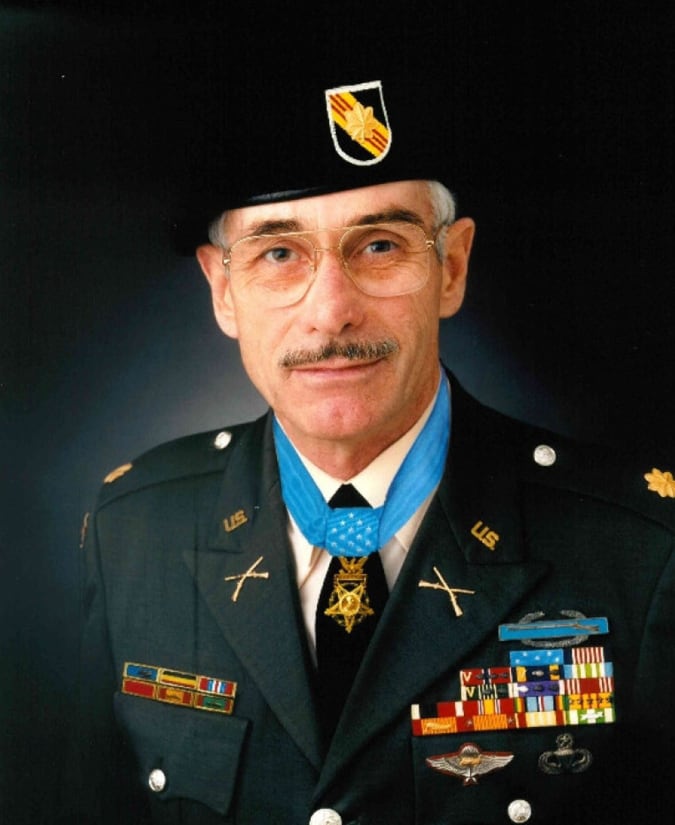
When the acting battalion commander was wounded, he assumed command of the evacuation and maintained communication with the available air support to direct fire on the enemy.
The following morning, Duffy organized defensive positions when the enemy ambushed the battalion and led the wounded to an evacuation area.
Retired Maj. Gen. David A. Morris was a charter member of Charlie Company, 3d Battalion, 7th Special Forces Group Combatant Commanders, which is now known as the Critical Threats Advisory Co.
During his career, he conducted foreign internal defense in support of the El Salvadorian government during two tours and received presidential approval for his recommendation to overcome the insurgents’ advantage.
Near the end of his first decade of service, Morris was selected to assume responsibility for Phase I training of the Special Forces Qualification Course at Camp Mackall.
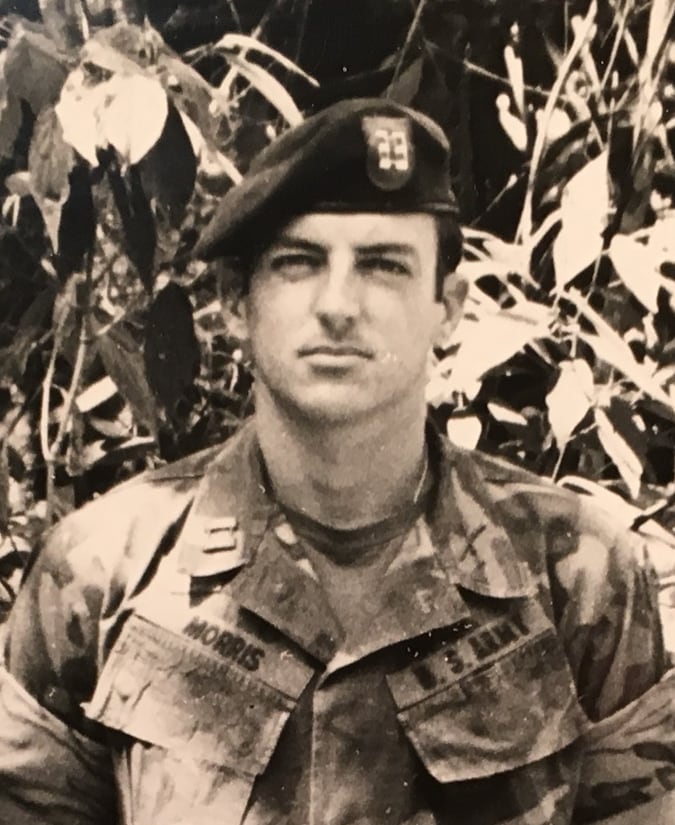
His career included developing a program with the Defense Advanced Research Projects Agency to use artificial intelligence to guide the mission planning of U.S. special operations forces and helped develop a program that later became the Defense Threat Database System.
In 1989, he wrote a paper that provided support to special operations forces during Operations Desert Shield and Desert Storm.
Then Chairman of the Joint Chiefs of Staff Gen. Colin Powell approved Morris’ classified plan for creating the Army Special Mission Unit.
In retirement, he has served as chairman of the Green Beret Foundation and serves with veteran nonprofit organizations.
Retired Col. Ronald D. Johnson enlisted in the National Guard in 1971 and graduated from the Special Forces Officers Course in 1977, while assigned to the 20th Special Forces Group. In 1984, he entered active-duty service as the detachment commander with the 3rd Battalion, 7th Special Forces Group in Panama.
He would serve in a wide variety of roles, including being selected as the first Special Forces officer to attend the Army War College fellowship at the Central Intelligence Agency.
Johnson spent most of his military career in the Southern Command Area of Responsibility and led combat operations in El Salvador as one of the authorized 55 military advisors during the civil war there in the 1980s.
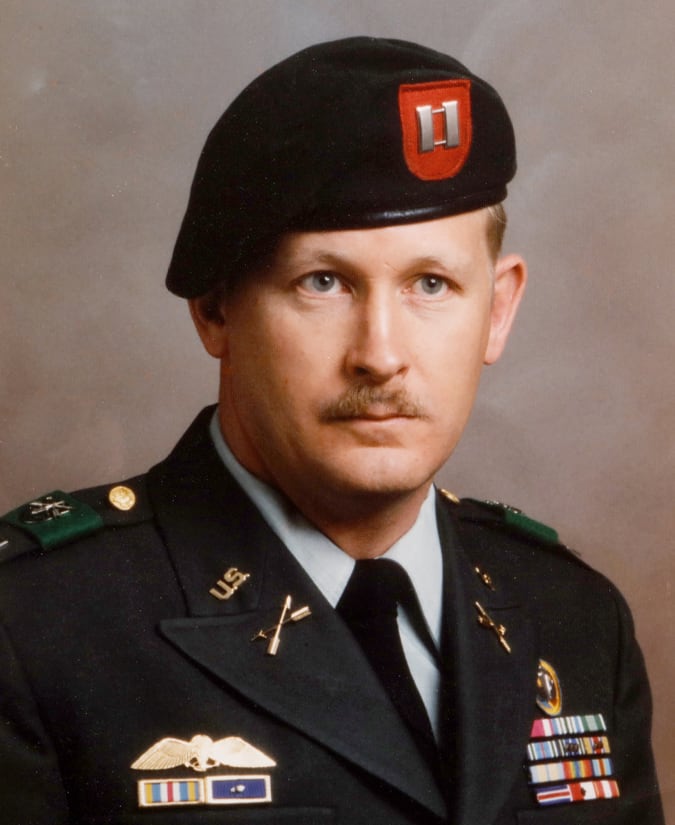
He also deployed to the Balkans in the 1990s as the senior military officer of an integrated team made up of members of the CIA, National Security Agency and Special Mission Unit to apprehend people indicted for war crimes.
After leaving military service, Johnson worked with the CIA and participated in worldwide operational and combat experiences with special mission units. He also served as the senior representative for directors of National Intelligence and the CIA at the U.S. Southern Command and as the science and technology liaison to the U.S. Special Operations Command for the Central Intelligence Agency.
In 2019, he was appointed and served as the U.S. ambassador to El Salvador until his retirement in 2021.
Retired Col. Christopher C. Miller served as an enlisted infantryman in the U.S. Army Reserves and as a military policeman in the Washington, D.C., National Guard during his 27 years of military service.
In 1993, he transferred to U.S. Army Special Forces, serving in numerous command and staff positions within the 5th Special Forces Group.
He is credited for being a “key player” during numerous worldwide deployments and contributing to the planning and participation of the 5th Special Forces Group’s initial combat operations in Afghanistan and Iraq.

Miller served in numerous special operations organizations and as deputy commander of the Specialized Joint Unit, U.S. Special Operations Southern Command.
After retiring in 2014, he worked as a defense contractor, a special assistant to the president at the National Security Council, assistant secretary of defense for special operations low-intensity conflict and deputy assistant secretary of defense for Special Operations and Combating Terrorism.
Miller served as the acting secretary of defense from Nov. 9, 2020, to Jan. 20, 2021.
Retired Col. Mark E. Mitchell commissioned in 1987 as an infantry officer and served in the 24th Infantry Division, including in Operations Desert Shield and Desert Storm.
He graduated from the Special Forces qualification course in 1993 and served as a detachment commander, company commander, battalion operations officer, and battalion commander with the 5th Special Forces Group during Operation Enduring Freedom and Operation Iraqi Freedom.
Mitchell spent a significant portion of his military career in the Central Command Area of Responsibility, leading combat operations in Kuwait, Afghanistan, and Iraq.
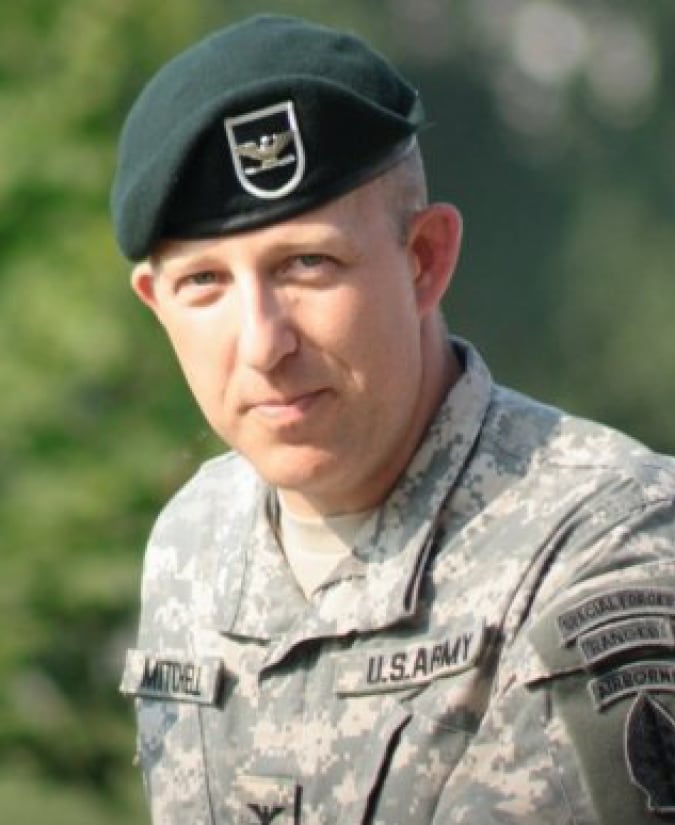
He was director of plans at the U.S. Special Operations Command Central; director of operations for the Combined Joint Special Operations Task Force Arabian Peninsula and was also the commander of the 5th Special Forces Group and Combined Joint Special Operations Task Force at the Arabian Peninsula.
He has also served as director for Counterterrorism on the National Security Council and after his military retirement, served as principal deputy and acting assistant secretary of defense for special operations and low-intensity conflict.
Retired Lt. Col. Roger D. Carstens commanded a platoon in the 75th Rangers, including a combat jump into Panama during Operation Just Cause.
He graduated from the Special Forces Qualification Course in 1991 and was a detachment commander and company executive officer and battalion executive officer with the 10th Special Forces Group in Germany.
He’s also commanded Company A, 4th Battalion and Company F, 1st Battalion under the 1st Special Warfare Training Group, training soldiers in unconventional warfare skills including the final Robin Sage exercise.

Carstens served as legislative liaison for U.S. Special Operations Command and as an advisor to the National Counter Terror Bureau during Operation Iraqi Freedom.
After his military career, Carstens has served as a special presidential envoy for hostage affairs, which negotiates the release of American citizens wrongfully detained abroad or taken hostage by terrorists and was designated as an ambassador by the president.
He also served as senior counterinsurgency and security force assistance advisor in Kabul, Afghanistan.
Sgt. 1st Class Riley E. Lott Jr. was of several Green Berets of Native American descent.
Lott altered his birth certificate at the age of 16 in 1960 to join the Army as a medic. After basic training personnel discovered his age, he was sent home and rejoined the military the next year.
Lott spent five of his nine years of military service in Vietnam as a combat medic.
He began his education in jungle medicine at Long An, Vietnam, treating those affected by the siege of the Special Forces team as the Civilian Irregular Defense Group revolted against U.S. forces.
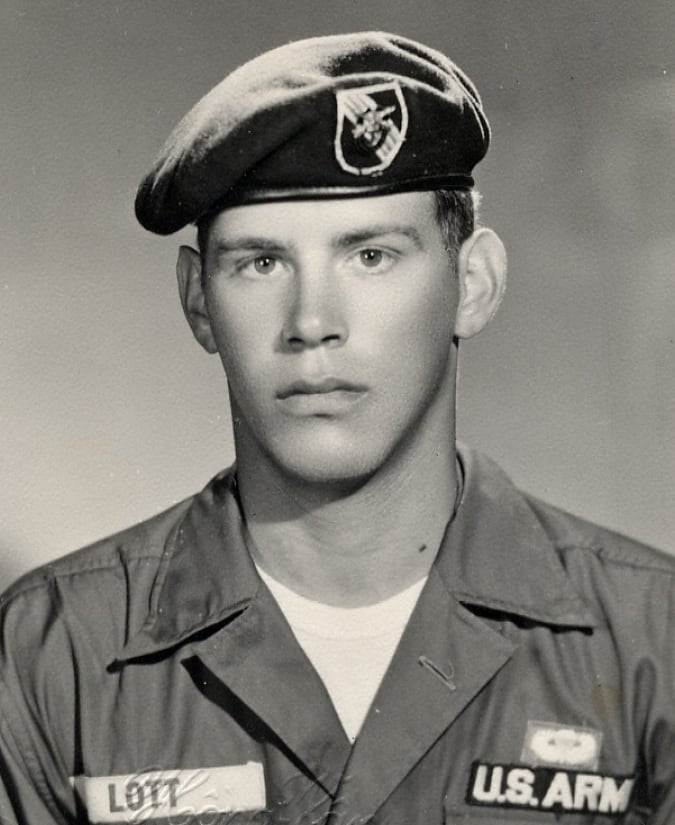
In Don Phuoc, he lived with, fought alongside, trained and treated Cambodian strikers who made up the Mobile Strike Force Command
Lott worked with the Cambodian forces to rebuild the abandoned Special Forces camp at To Chau and clear areas surrounding Special Forces camps at Cai Cai and My Dien II.
Lott left the Army at the age of 26 but continued to help family members, veterans and strangers in need, taking veterans to hospice care and hosting weekly veteran lunches.
He died Aug. 29, 2021.
Azadeh Aryana was born in Tehran and fled Iran during the Islamic Revolution of 1979 with her 3-year-old son. Pregnant at the time and fleeing under diplomatic immunity, she arrived in California.
While awaiting the arrival of her husband who was still in Iran, Aryana, with limited English, worked as a janitor at a fast-food restaurant.
She first rose through the ranks at the restaurant, before rising in the ranks and becoming security director of Cisco Systems, a multinational digital communications conglomerate.
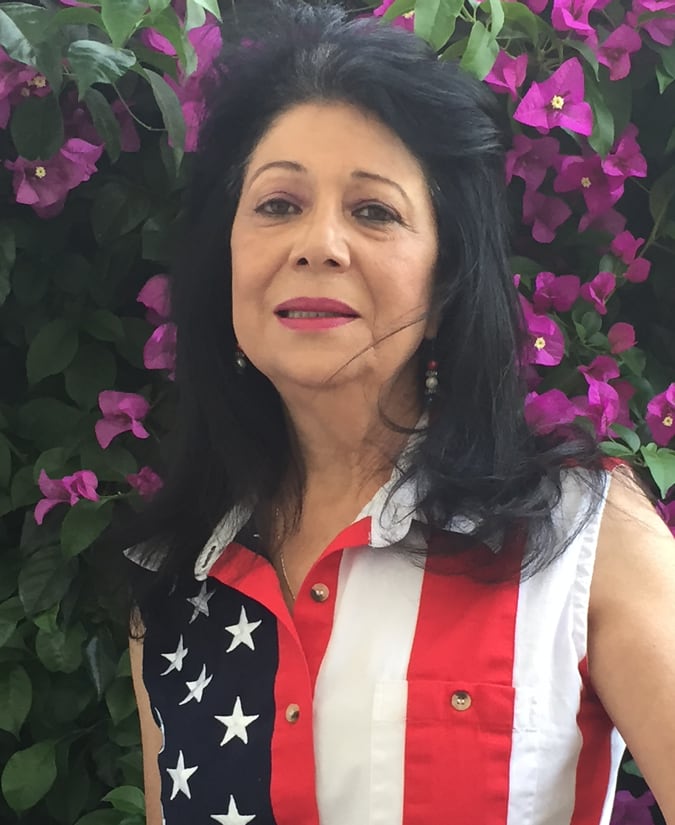
Aryana then opened her own security firm providing personal security to clients in the San Francisco area.
After putting her children through college, she retired and devoted her time to American service members after a family member joined Special Forces.
Over the past 17 years, she has personally shipped more than 10,000 care packages to deployed active and reserve Special Forces soldiers.
Additionally, Aryana serves as a Special Forces goodwill ambassador, consistently attending military homecomings across California and has participated as a patriot motorcycle rider.
Civil Affairs
Born in Peru and raised in Arizona, retired Col. Ernesto L. Sirvas commissioned to serve in the field artillery branch from 1987 to 1996. He then joined the Civil Affairs branch from 1996 to 2015.
At the beginning of his Civil Affairs career with the 96th Civil Affairs Battalion, Sirvas served four years in various roles including as a team leader, operations officer, company executive officer, company commander and logistics staff officer.
Sirvas’ next assignment took him to Special Operations Command South in Puerto Rico for four years, where he served as a Civil Affairs planner and command group executive officer.
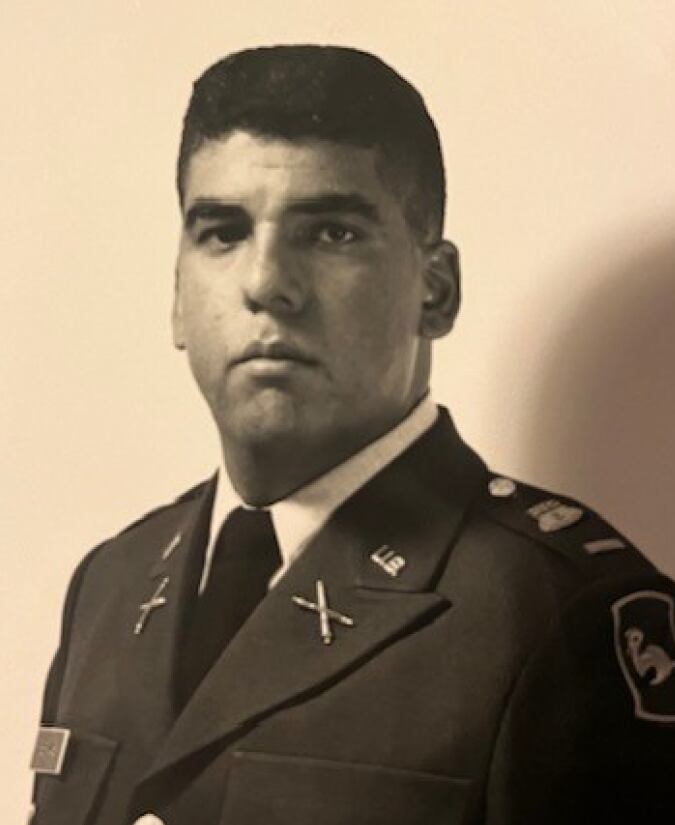
Sirvas continued his career by commanding the U.S. Army Forces Battalion in support of Joint Task Force Bravo in Honduras and returned to the 95th Civil Affairs Brigade as deputy commander.
In 2010, Sirvas was assigned to Regional Command West, Afghanistan, in support of Operation Enduring Freedom. There, he coordinated and synchronized U.S. support to stability and governance efforts in the Afghan provinces of Herat, Rarah, Badghis, and Ghor, and advised the commander and staff on matters pertaining to stability and governance.
He also worked with Spanish, Lithuanian, Italian, and U.S. governments and agencies to implement programs supporting International Security Force Assistance joint command lines of effort in western Afghanistan.
Sirvas returned to Fort Bragg to serve as the U.S. Army Special Operations Command chief of Concepts, Experimentation, and Science and Technology.
He also directed the creation of a cross-organization planning team to review and develop recommendations to redesign the U.S. Army Reserve Civil Affairs structure to enhance the soldiers’ career paths and their ability to support the conventional maneuver force commander. Furthermore, he directed the implementation of a Reserve Component Civil Affairs Captains’ Career Course.
After 28 years of Army service, Sirvas retired and continues to be of service to the military community through volunteer work, providing scholarships to military family members, donating to family readiness groups and assisting Civil Affairs soldiers and families after traumatic events.
Donald C. Barton first enlisted in the Army from 1974-1981 as an air defense artillery vulcan gunner and other positions. In 1981, he reenlisted in the U.S. Army Reserve and served at the 307 Psychological Operations Company in roles of increasing leadership until 1993. In 1993, Barton returned to active duty and served until his retirement in 2006.
After 20 years of active service and 12 years of reserve service, Barton authored and coauthored several documents that established or revised more than seven Civil Affairs military occupational specialties.
He’s also provided analysis during the Civil Affairs Force Modernization Assessment.
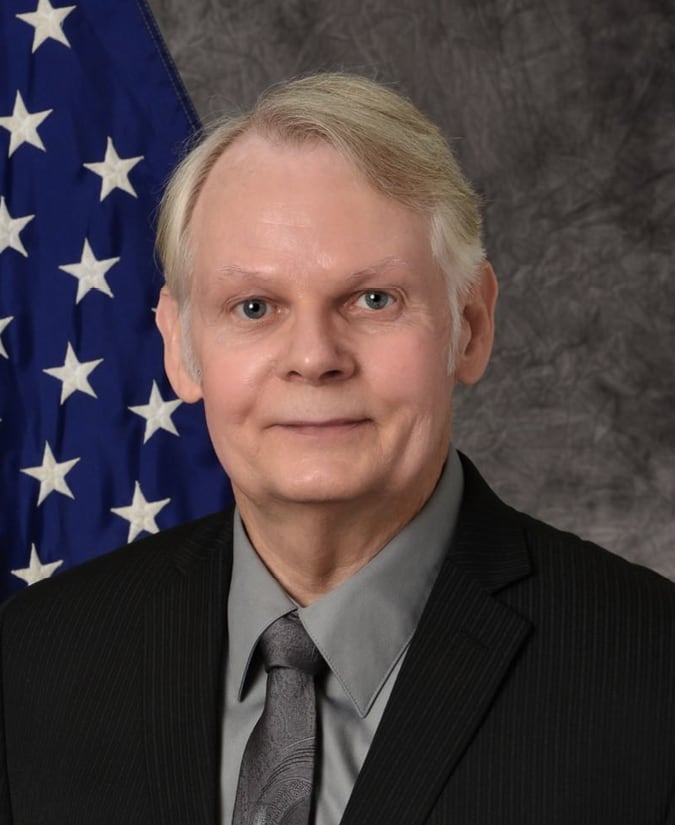
Barton is currently a Fayetteville resident.
Spencer Meredith IlI serves as a professor of National Security Strategy at the National Defense University, College of International Security Affairs.
He has spent more than half that time mentoring, advising, and educating the operational and institutional special operations forces.
He provides regional expertise on Eastern Europe, Russian, Eurasian, and Middle Eastern politics, and their roles throughout the special operations community.
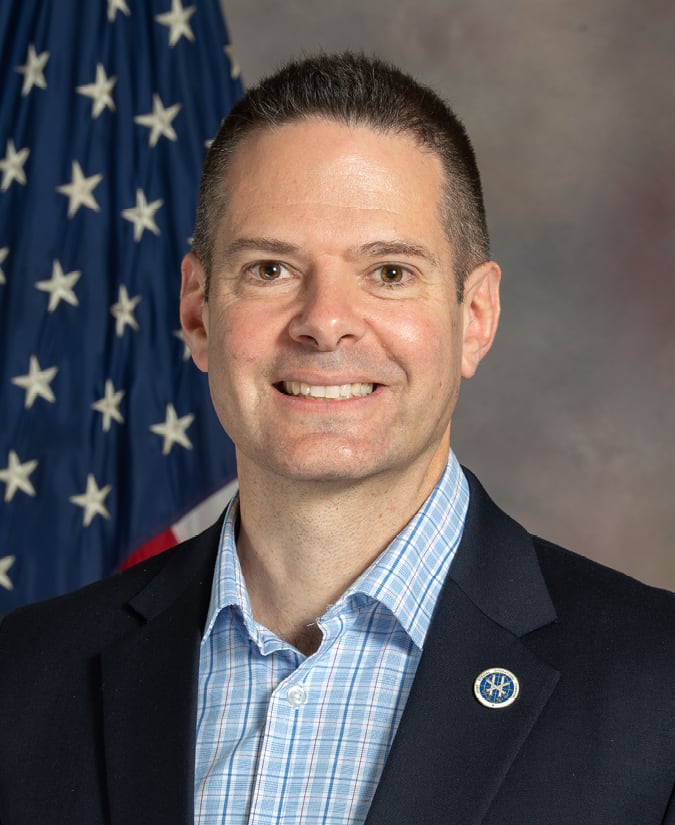
He also serves as a subject-matter expert for several geographic combatant commands, the intelligence community, and joint special operations and frequently advises the U.S. Army Special Operations Command and subordinate units at Fort Bragg.
Meredith also has articles appearing in professional publications such as Strategy Bridge, Small Wars Journal, InterAgency Journal and Foreign Policy Journal.
The Fayetteville Observer military and crime editor F.T. Norton and Army Times contributed to this report.
Editor’s Note: This article was published as part of a content-sharing agreement between Army Times and The Fayetteville Observer. This article has been updated to include additional comments from the commander of the JFK Special Warfare Center School.
